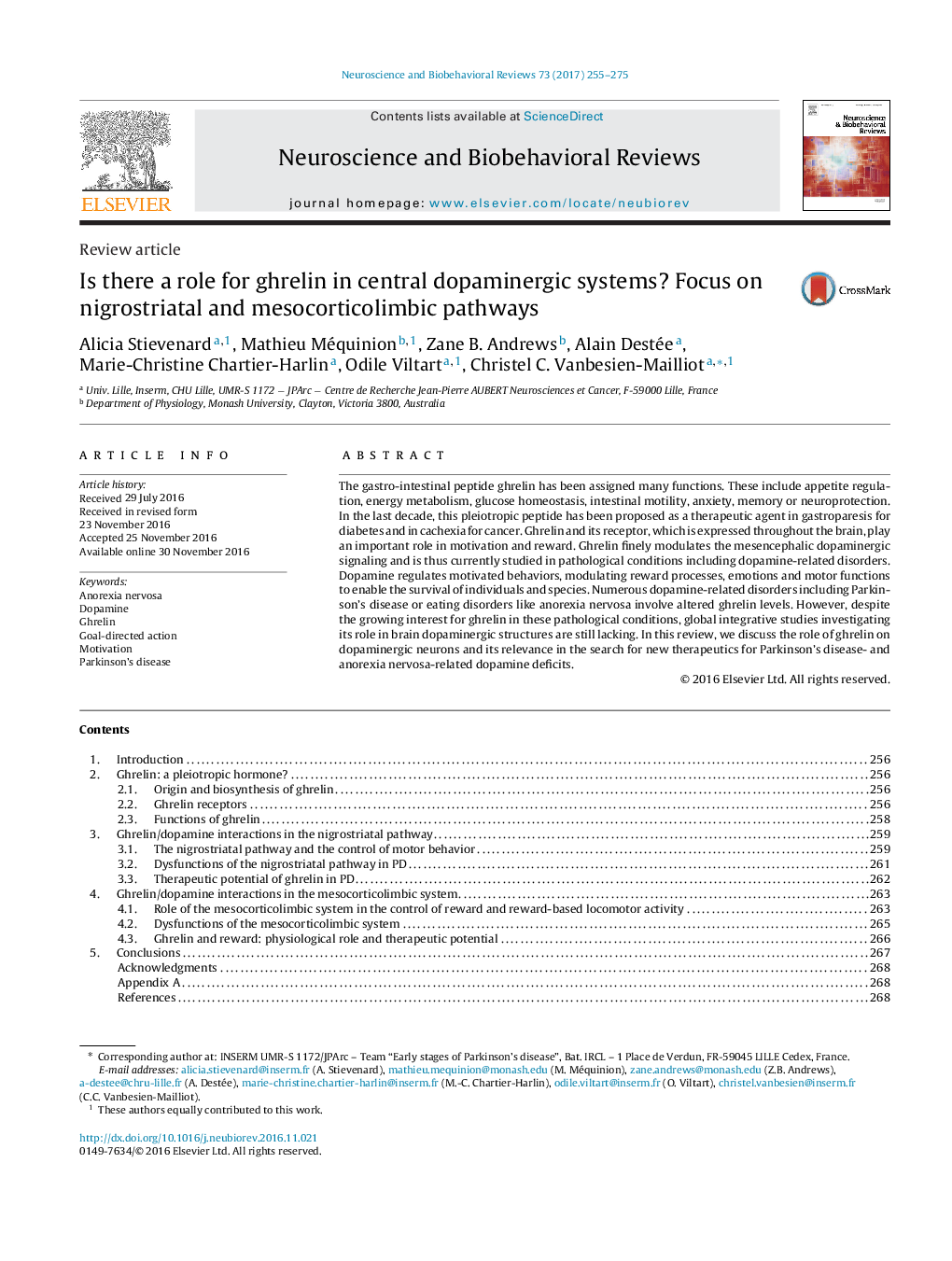| Article ID | Journal | Published Year | Pages | File Type |
|---|---|---|---|---|
| 5043540 | Neuroscience & Biobehavioral Reviews | 2017 | 21 Pages |
â¢Ghrelin interacts with dopamine systems in sustaining goal-directed actions.â¢The brain does not produce ghrelin but its receptor is present on dopamine neurons.â¢GHSR1a can form heterodimers notably with dopamine receptors.â¢In anorexia nervosa increased ghrelin levels is an adaptive response to starvation.â¢Ghrelin has biomarker and disease-modifier potentials in Parkinson's disease.
The gastro-intestinal peptide ghrelin has been assigned many functions. These include appetite regulation, energy metabolism, glucose homeostasis, intestinal motility, anxiety, memory or neuroprotection. In the last decade, this pleiotropic peptide has been proposed as a therapeutic agent in gastroparesis for diabetes and in cachexia for cancer. Ghrelin and its receptor, which is expressed throughout the brain, play an important role in motivation and reward. Ghrelin finely modulates the mesencephalic dopaminergic signaling and is thus currently studied in pathological conditions including dopamine-related disorders. Dopamine regulates motivated behaviors, modulating reward processes, emotions and motor functions to enable the survival of individuals and species. Numerous dopamine-related disorders including Parkinson's disease or eating disorders like anorexia nervosa involve altered ghrelin levels. However, despite the growing interest for ghrelin in these pathological conditions, global integrative studies investigating its role in brain dopaminergic structures are still lacking. In this review, we discuss the role of ghrelin on dopaminergic neurons and its relevance in the search for new therapeutics for Parkinson's disease- and anorexia nervosa-related dopamine deficits.
